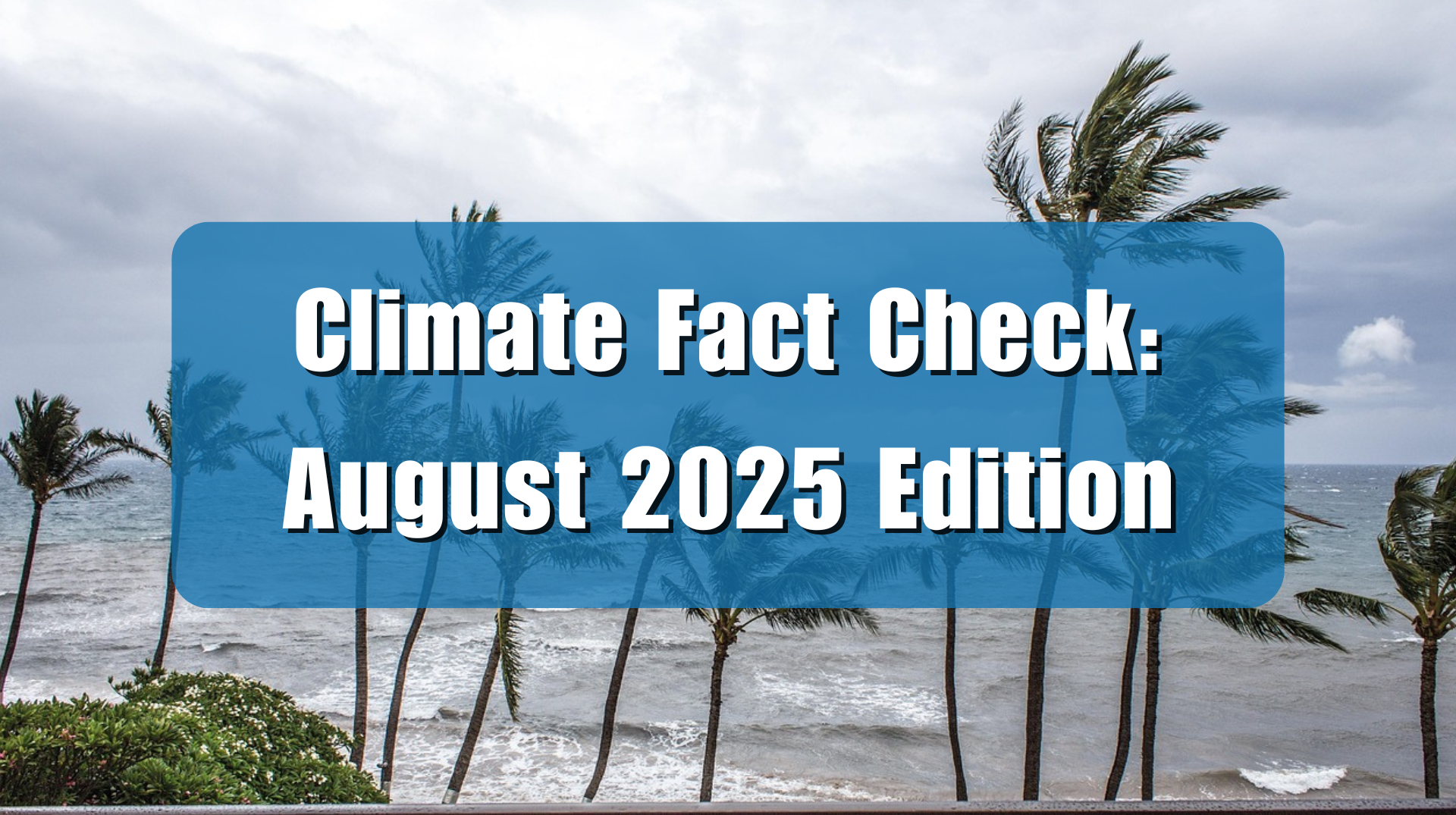A story in the Epoch Times reports on a peer-reviewed study that assessed climate changes over time and potential “crisis indicators”—such as natural disasters, heat waves, and crop yields. The study ultimately concluded that observations to date show “no clear positive trends of extreme events.”
The Epoch Times story, “Climate Crisis Is ‘Not Evident Yet,’ Italian Study Says,” discusses research conducted by team of scientists from a variety of universities and research institutes in Italy. They undertook a review of recent literature concerning the measurable effects of climate change on a variety of types of weather event trends as well as on the productivity of plants.
The paper, “A critical assessment of extreme events trends in times of global warming,” was published on January 13th, in the journal The European Physical Journal Plus.
The study looked at several different measurable factors. From the abstract of the paper:
This article reviews recent bibliography on time series of some extreme weather events and related response indicators in order to understand whether an increase in intensity and/or frequency is detectable. The most robust global changes in climate extremes are found in yearly values of heatwaves (number of days, maximum duration and cumulated heat), while global trends in heatwave intensity are not significant. Daily precipitation intensity and extreme precipitation frequency are stationary in the main part of the weather stations. Trend analysis of the time series of tropical cyclones show a substantial temporal invariance and the same is true for tornadoes in the USA.
Put more simply, the researchers found there is little or no published evidence showing heatwaves, extreme rainfall events, hurricanes, and tornados, have increased in number or intensity over the 20th and early 21st centuries.
The study goes on to look at other factors.
The analysis is then extended to some global response indicators of extreme meteorological events, namely natural disasters, floods, droughts, ecosystem productivity and yields of the four main crops (maize, rice, soybean and wheat). None of these response indicators show a clear positive trend of extreme events. In conclusion on the basis of observational data, the climate crisis that, according to many sources, we are experiencing today, is not evident yet. (Emphasis mine).
As well as debunking claims that a climate crisis is in the offing, the paper has a plethora of good news in it,” into, “In addition to debunking claims that a climate crisis is in the offing, the paper also offered a plethora of good news.
For instance, the impact of higher carbon dioxide levels is clear and positive:
[I]t can be said that global plant biomass has changed significantly in recent decades with a phenomenon known as global greening which indicates the significant increase in productivity of ecosystems (agricultural and natural) that in recent decades was mainly highlighted by satellite monitoring.
Satellite data show “greening” trends over much of the planet … are pushing back deserts around the world (both hot deserts of tropical latitudes and cold deserts of more northern latitudes). …[S]how[ing] a 31 percent increase in gross primary production during the twentieth century.
Other positive trends include, improved human health and fewer impacts of natural disasters on population:
From the Second World War, our societies have progressed enormously, reaching levels of well-being (health, nutrition, healthiness of the places of life and work, etc.) that previous generations had not even remotely imagined.
Many of the findings in this paper mirror what we have reported daily on Climate Realism and have previously documented at Climate At A Glance.
The Epoch Times is to be commended for drawing attention to the important findings contained in this study. Had the study concluded the opposite, that a “climate crisis exists,” you can be certain it would have been front page news on major media outlets back when the study was originally released.
Sadly, the mainstream media only seems interested in reporting on climate science research when it supports their preconception that dangerous climate change is occurring.





















